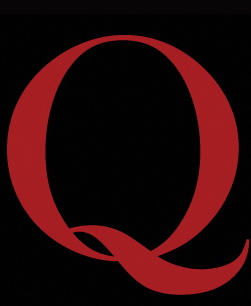The other day I was labeled as “Strait-laced” by someone I have never met before. I found myself caught off guard and rather defensive. Uncertain of his precise meaning, I quickly responded that in my opinion I could not possibly be considered as “strait-laced”.
The following day I felt a similar amount of distress over this judgment so I began to search for the literal meaning. This is what I found:
1. Exaggeratedly proper
2. Excessively strict in behaviour, morality, or opinions
The thing is, if one were to judge someone based simply on their appearance, I can understand how they could come to the conclusion that they are “exaggeratedly proper”. Yet in my view, it is near to impossible to determine that someone is “excessively strict in behaviour, morality, or opinions” based solely on their physical appearance.
I will admit that I am clearly sitting in the defendant’s seat however I still can’t figure out what could possibly have led him to this conclusion. I was wearing a hot pink shirt with black polka dots, messy hair and a huge hole in my tights… exaggeratedly proper? No… excessively strict in behaviour, morality, or opinions? Maybe….
This incident opened my eyes to how often we label, categorize and pigeonhole people.
How often do you find yourself unnecessarily putting a label on someone or something without reason?
In a sense a judgment is like a final verdict; one must support their conclusion with evidence. We consequently prove to ourselves that our original thought, which then became a judgment, is now the only possible conclusion. We make ourselves right.
As a coach I regularly hear my clients judging themselves. Similar to the judgment of others, they search for evidence to make their thoughts right.
How often do you judge your actions, appearance or beliefs based on false evidence?
The problem is that sometimes we make ourselves right for the incorrect reasons. That is, we don’t want to be wrong.
When do you make yourself right to cover up being wrong?
For a moment let’s substitute judgment for compassion. Imagine a world where we all came from a place of openness, consideration and kindness rather than asserting our narrow minded beliefs and final verdicts on both ourselves and others.
Let’s try it out!
I request that you, yes YOU, challenge yourself to replace each judgment you make in the next month with a thought of compassion.
Subscribe to:
Post Comments (Atom)


2 comments:
Great thoughts Quinn. Here's a notion though, and it comes from a book that I seldom quote. Proberbs 23:7 says "as a man thinketh so shall he be". If you think about that for a second it will have great weight. If we take in all the off-putting things that are said to us by simple minded fools how will we live our lives? I so believe your perspective. By believing in our positive possibilities we manifest the true beauty of who we are. Thanks for pointing this out so eloquently. Much love.
Only a total stranger could see you as "strait laced" Coach Quinn -- or maybe someone who used the wrong words to say you have a strong commitment to clear values?
It's so much easier to connect with people when they see us pretty much as we see ourselves. Often their empathy and encouragement resonates in ways that inspire us. It seems to me that this is essential to great coaching. It builds trust. We're more inclined to value insights and accept encouragement from people who see us much the way we see ourselves; we're more inclined to trust their judgement, their grasp of reality.
Although it's frustrating to be confronted with a "distorted mirror", in part we know who we are by knowing who we are not. Women are given many opportunities to look into distorted mirrors because perceptions are often distorted by prejudice -- ie by attitudes and beliefs that are falsely assumed to be "the truth". We must look beyond the distortion to identify the prejudice that creates it. What is the prejudice -- the filter of unquestionned values and assumptions that might make someone perceive you as "strait-laced", for instance? We cannot hope to comprehend these mis-perceptions until we identify the prejudices that create them.
If we are to achieve a truly compassionate world, it's important to confront prejudice, and to encourage those who are blinded by it, to question their assumptions.
Go Gurrrl!
Post a Comment